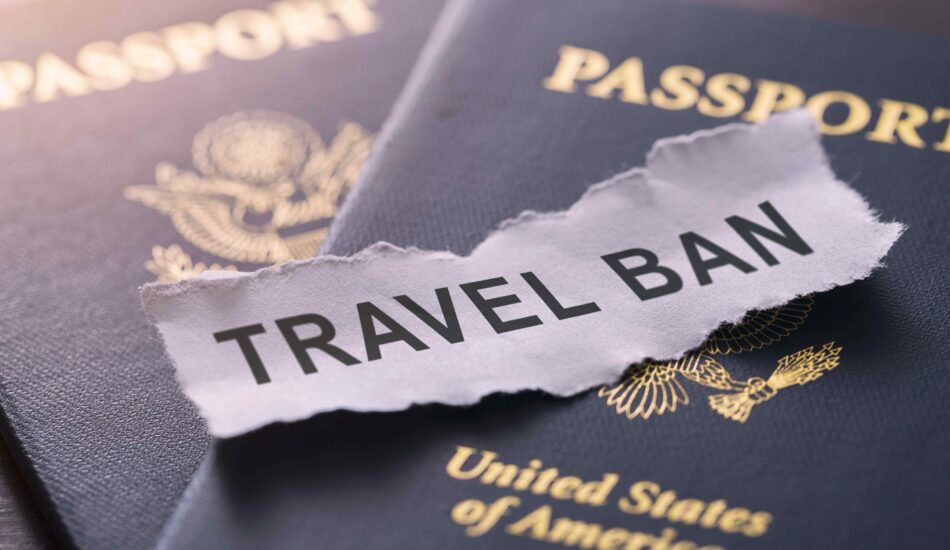The Impact of a Criminal Record on Family Visa Eligibility

Applying for a family visa in the United States requires several considerations, one of which is the criminal record of the applicant and sponsor. Whether a misdemeanor or a felony, a criminal background can seriously affect applications for family visas. For individuals negotiating this complex case, knowledge of the impact of a criminal record is crucial. This post will review how U.S. immigration officials review such data and how they could impact your family visa application.
How Background Checks Affect Visa Applications
Whether for a parent, child, or spouse, all family visa applicants must go through extensive background investigations run by U.S. Citizenship and Immigration Services (USCIS). These verifications guarantee that the individual does not endanger public safety or security. A visa background check examines multiple aspects of your past, including your criminal record.
If a sponsor or applicant has a history of criminal activity, the process could be severely complicated. Particularly alarming crimes to USCIS involve drugs, violence, or fraud; they may cause application denial. Whether it’s a minor misdemeanor or a more serious felony, all criminal histories are closely examined.
Criminal Records and Sponsorship
Many people ask, Can a felon marry an immigrant, or Can I petition my wife if I have a felony? The short answer is that it relies on the nature of the crime as well as the length of time after the conviction. Although their criminal record must be assessed on a case-by-case basis, convicts are occasionally allowed to sponsor family members for visas. If the felony includes drug offenses, immigration fraud, or violent crimes, the likelihood of denial is higher.
For example, USCIS takes a somewhat severe position regarding domestic violence and green card eligibility. A person’s capacity to sponsor a family member may be severely restricted if they have a past of domestic abuse. The same is true of people found guilty of major crimes such as drug trade or fraud.
Specific Crimes and Their Impacts

Regarding family visa eligibility, some crimes create greater issues than others. Let us discuss how different crimes might affect the application:
- Felonies: One of the most often encountered problems people have qualifying for or sponsoring a family visa is crimes. During the USCIS background check, a crime can raise questions and might even cause the application to be denied. If you’re asking, can I marry an immigrant if I have a felony? remember that felony convictions—especially ones involving violence—may impact both marriage and visa applications.
- Misdemeanour: Though normally less severe than felonies, misdemeanors can still affect your eligibility. Can you get a misdemeanor green card? Indeed, many times, the type of misdemeanor is very important. Depending on the particular situation, crimes including theft or small drug offenses could cause problems.
- Drug-Related Crimes: Immigration law finds particularly challenging drug offenses. DACA disqualifying crimes, sometimes include drug-related offenses, which can also affect applications for green cards or visas. A visa can be difficult to get or renew even for small drug-related charges.
- Violent Crimes: Violent crimes are among the most closely observed during immigration background checks. Serious red flags include offenses including murder, robbery, or assault. Deportation after a felony conviction is a genuine option if you have been found guilty of a violent offense. Under such circumstances, it is quite essential to consult legal advice before starting your application.
- Crimes Involving Fraud: USCIS treats harshly crimes involving fraud like immigration fraud, identity theft, or other forms of fraud. Those found guilty of these offenses may be permanently excluded from sponsoring family members. A green card background check will probably find the crime even if it happened some years ago, therefore complicating the immigration process.
Waivers and Legal Options

While getting a family visa is not impossible for those with a criminal background, it might be difficult. Sometimes you can be qualified for a waiver, especially if the crime was a minor offense or occurred many years ago. If you’re asking, Can I get my citizenship with a felony? the response can rely on your eligibility for a waiver or other legal solution. For example, some drug-related offenses or lesser felonies could allow waivers; more serious crimes usually lead to refusal.
An immigration attorney can offer a significant path if you are trying to sponsor someone and either you or they have a criminal record. For example, an attorney can guide you through what disqualifies you from receiving a green card. They can help you decide whether a waiver or more documentation is required moving forward.
Special Concerns: Police Officers and Felons

Sometimes, inquiries emerge like Can a police officer marry a felon or Can a cop be married to a felon. Although there are no laws specifically forbidding such marriages, the criminal background could however affect the visa application process. If the sponsor is a police officer and the spouse is a criminal, the USCIS background check process could closely examine the application.
Whether the criminal has turned around and whether they endanger public safety are the main issues immigration officials give top importance. USCIS will have to consider how the criminal past affects overall eligibility even in cases of a legally valid marriage.
Green Card and Criminal Background
Applying for a green card while carrying a criminal background presents formidable challenges. With a criminal past, Can you sponsor someone for a green card? Many times, sure, but only following after a thorough immigration official review. Crimes regarded as aggravated felonies, particularly those involving drugs or violence, are far more likely to cause denial.
Furthermore, for those wondering, how to sponsor someone for a visa the procedure becomes even more difficult if a criminal past is there. For example, the immigrant background check will probably result in a denial if the person carries convictions for drug trafficking, terrorism, or violent offenses.
Criminal History for Foreigners Entering the U.S.

Not only Americans with criminal records under examination here. When applying for visas or green cards, foreign nationals also go through a criminal record check USA for foreigners. The procedure investigates both any criminal behavior in the United States and their background in their native country.
Even small crimes like drug possession or shoplifting could cause delays or denial of the application. Furthermore, specific crimes can keep a foreign national never entering the United States. What countries ban convicted felons? Although few felons in the United States are allowed to apply for visas, crimes that include terrorism or human trafficking could cause a permanent ban.
Sponsorship Challenges with a Criminal Record
If you have a criminal record and want to sponsor a family member, several difficulties may arise. Can a green card holder invite someone to the U.S., or how to sponsor someone for a visa with a criminal record? Sponsorship can still go on only after thorough background checks and maybe a waiver application.
For those curious, Can you get into America with a criminal record? It depends on the kind of conviction and its level. Background checks are thorough because U.S. immigration authorities place a heavy burden on public safety.
Conclusion
At Passage Law, we appreciate how difficult it may be to discuss the immigration procedure while carrying a criminal record. Our knowledgeable lawyers can assist you regardless of your nationality—a U.S. citizen wishing to sponsor a family member or a foreign national applying for a visa. Get in touch now to find out how we can help you overcome the challenges presented by a criminal record on your immigration path.
